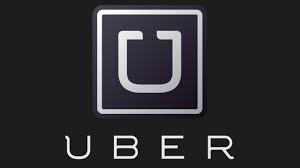
The Sharing Economy
The sharing economy has long been viewed as the domain of the young and hip – but that may be changing. Don’t be surprised if your next Uber driver has silver hair. An increasing number of older Australians are opening their wallets to services like Airbnb, Airtasker and Uber – and their earnings from these services are increasing, too. So says the RateSetter Sharing Economy Trust Index, a biannual report that measures the attitudes and behaviour of Australians towards sharing economy services.
The report from peer-to-peer lending firm RateSetter claims that more than two-thirds of Australians are spending and earning through sharing economy services. Baby Boomers – people aged 52 to 70 – led the charge, with earnings in the June half-year growing by 121 per cent compared to six months earlier. The RateSetter report says most people are willing to earn money from selling goods via online marketplaces like eBay and Gumtree.
John Lister, whose accounting practice Nixer provides accounting services to participants in the sharing economy, is also seeing a growing number of older Australians on his books. “Our main client base is aged 23-35 but there are also more Baby Boomers than I would have thought,” Liston says. “There are quite a few retirees who are Uber drivers. Part of the reason is to support their pension but mainly I think they just want to get out of the house and get back in the workforce.”
In countries like the US, older citizens are being targeted to participate in the sharing economy. Uber, which operates in more than 440 cities worldwide and was valued at US$50 billion last year, recently announced a partnership with Life Reimagined, a subsidiary of AARP, which is a non-profit organisation working to address the needs and interests of older Americans. The ride-sharing giant provides a US$35 incentive – which covers the cost of a full tank of petrol in many US cities – for all Life Reimagined members who sign up to be drivers and complete 10 trips.
Airbnb, which now averages 425,000 guests a night worldwide, is also targeting older hosts. It released a statement last year that “celebrated” its community of hosts aged over 60. Among Airbnb hosts, 10 per cent are over 60, and they receive more five-star reviews (7 per cent more) compared to younger hosts.
Foggo says that Australia remains behind most other developed economies when it comes to participation in the sharing economy, “but the indication is that we are catching up,” he adds. All this sharing comes at a price. A recent INTHEBLACK story pointed to tax authorities’ increasing interest in the sharing economy. “A lot of people think that earning money in the shared economy is different from earning it in the traditional economy,” says Lister.
The ATO ruled last year that anyone operating one or more sharing economy “enterprises” is required to register for GST if annual turnover exceeds A$75,000 (not including rental income). Many who join the sharing economy are required to submit regular Business Activity Statements and an Australian Business Number (ABN). For those who provide ride-sourcing services such as Uber, the tax requirements are different. The ATO has stated that you need an ABN, you need to be registered for GST and need to account for GST on the full amount of every fare regardless of how much is earned.
Lister says retirees earning an income through the sharing economy should speak to their accountant as it may affect their pension eligibility. “No matter what age you are, as soon as you become an Uber driver, for example, you are a sole trader and a business owner.”
INTHEBLACK is Australia’s highest circulating business magazine, and its website intheblack.com.
Are you over 50 and an Uber driver? Let us know below.

